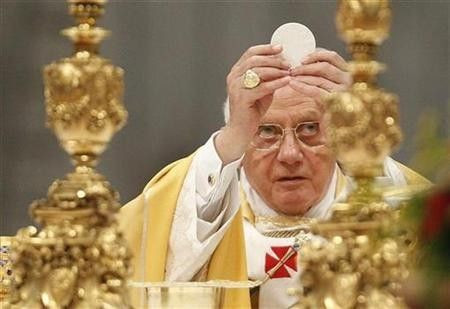Vatican sets up financial authority to prevent money laundering

The Vatican has established a new financial authority that seeks to combat money laundering and make its financial activities more transparent.
Pope Benedict XVI has signed new rules that will make the Vatican’s banking regulations conform more closely to global efforts to reduce money laundering.
The action comes ahead of a December 31 deadline by the European Union (EU) to create an authority to oversee all of its financial operations.
In September, the Vatican bank was accused by Italian prosecutors of flouting international laws on money-laundering. Authorities in Rome placed Ettore Gotti Tedeschi, the director of the Vatican Bank, and his deputy under criminal investigation after the Bank of Italy informed them about possible money laundering.
Italian authorities then confiscated $30-million which the Vatican Bank had deposited with a commercial bank without identifying the depositor or recipient.
Tedesechi denied wrongdoing and claimed that bank operates under “absolute transparency.”
Originally established by Pope Pius XII in 1942, the Vatican Bank (officially called the Institute for Religious Works) has no branches and has operates beyond the rules of the EU. It was created primarily to handle accounts of religious orders, cardinals, bishops and priests.
The bank is led by professional bankers overseen by cardinals. The bank has no shareholders and its profits are supposed to be given to charitable to religious foundations
The new laws are expected to become effective by April 1.
© Copyright IBTimes 2024. All rights reserved.











